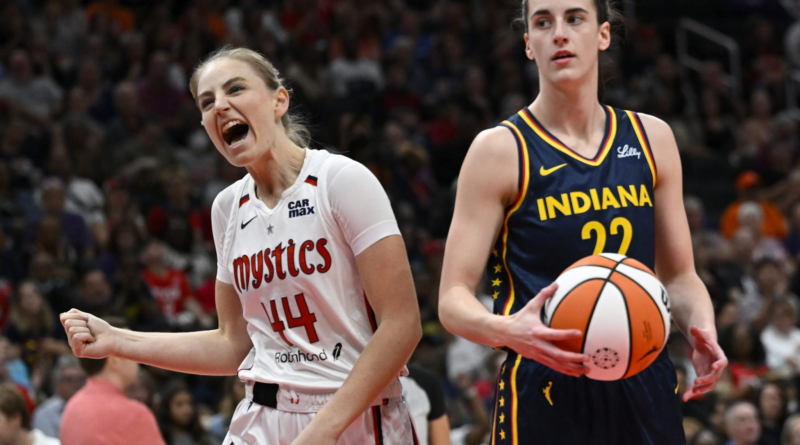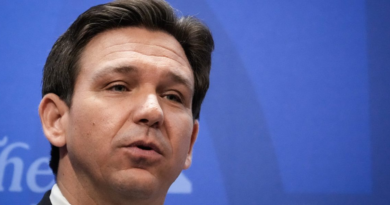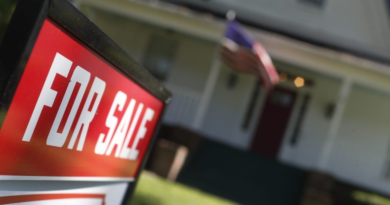For half of female athletes, their expenses outweigh their earnings
Good morning! Namibia is expected to elect its first female president, far-right politician Marine Le Pen will support a no-confidence vote in the French government , and female athletes’ salaries come with the cost of being a pro athlete. Have a terrific Tuesday.
– The cost of winning. Female athletes’ salaries are a hot topic—look no further than the WNBA, where debate raged this year about superstar Caitlin Clark’s $76,000 rookie salary—less than her $84,000 autograph card sold for at auction.
Some argue that those salaries, while meager in comparison to male athletes’ earnings, aren’t so bad in context—after all, the WNBA season is four months, not year round, and players have other financial opportunities too. But less talked about is the expense that goes into being an elite athlete and maintaining a spot in a competitive league.
A new report from Parity, a platform that connects female athletes with brands, examines the realities of female athletes’ earnings. More than half of women athletes surveyed said their costs are higher than their earnings in their sport.
In a survey of 500 pro athletes who competed in 2023, 58% reported making $25,000 or less that year; half made no money from endorsements. At the same time, 41% said they paid at least $10,000 to play their sport, with costs including travel, training, coaching, and equipment. Eight percent of respondents spent more than $50,000 to compete. Tennis, figure skating, and race car driving were the most expensive sports.
Seventy-four percent of athletes surveyed said they had a job outside their sport, and 63% said they worked while their sport was in season. In qualitative responses, athletes spoke about how challenging that can be: “My training schedule makes it very difficult to keep a job that can cover personal expenses,” one athlete said. Sixty-four percent of female athletes surveyed said they’ve considered leaving their sport because of finances.
Endorsements are frequently proposed as a solution while salaries remain low; in Clark’s case, her $76,000 on-court earnings are dwarfed by multi-million-dollar sponsorship deals. This is a longstanding conundrum: as retired WNBA star Sue Bird told me at Fortune’s Most Powerful Women Summit in October, she “pretty much lost money playing in the WNBA” compared to what she could earn off the court. But for the vast majority of athletes, sponsorship money isn’t reliable enough; 57% said endorsement earnings are not predictable.
In the WNBA, a new collective bargaining agreement is soon to be negotiated and players expect salaries to rise soon. But all women’s sports can’t say the same—from sports with individual competitors to emerging leagues like the PWHL or LOVB. While sponsor and fan interest surges, costs still pile up for top athletes—and endorsements are only part of the solution.
Emma Hinchliffe
emma.hinchliffe@fortune.com
The Most Powerful Women Daily newsletter is Fortune’s daily briefing for and about the women leading the business world. Today’s edition was curated by Nina Ajemian. Subscribe here.
ALSO IN THE HEADLINES
– News from Namibia.Namibia is expected to elect its first female president, with partial voting results showing that Netumbo Nandi-Ndaitwah is in the lead with 54% backing. She is currently Namibia’s vice president and represents the South West African Peoples Organization, which has ruled the country since 1990. Bloomberg
– No-confidence vote. Far-right French politician Marine Le Pen is ready to support a no-confidence vote in France’s government over its proposed budget and plan for narrowing the country’s deficit. Le Pen is a member of the National Rally, which holds the balance of power in the lower house. Wall Street Journal
– Adding ads? OpenAI CFO Sarah Friar said that the company is considering adding advertising to its products and would be “thoughtful” of ad placements. In a follow-up statement, Friar said OpenAI had “no active plans to pursue advertising.” Financial Times
– Time is ticking. As the deadline for Hong Kong companies to appoint at least one woman to their boards nears, there are still around 250 companies that are not compliant. The Hong Kong Exchanges and Clearing introduced the rule in 2022 and gave its 2,623 companies until the end of 2024 to make appointments.South China Morning Post
MOVERS AND SHAKERS
Intel named Michelle Johnston Holthaus interim co-CEO. She is CEO of Intel Products and was previously EVP and general manager of the company’s client computing group.
Mary Jo Prigge is retiring as chief service delivery officer of CCC Intelligent Solutions, an intelligent experiences provider for the auto and insurance industries. She has worked at CCC for the past 25 years.
Rewire News Group, a media nonprofit covering reproductive rights, named Mallory Johns executive director. Most recently, she was head of operations for B2C transformation at the Associated Press.
Restaurant Technologies, a commercial kitchen solutions provider, named Alissa Partee, previously the company’s chief people officer, COO.
Delfi Diagnostics, a blood-based tests developer for cancer detection, named Dr. Amoolya Singh CTO. Previously, Singh was SVP of data science and Chief Scientific Officer at Grail.
WCG, a clinical research solutions provider, named Stacey Yount chief growth officer. Most recently, she served as SVP of biopharma laboratory services at Labcorp.
Arevon Energy, a renewable energy company, appointed Shanelle Montana as chief development officer. Most recently, she was SVP of portfolio management at Lightsource.
Heritage Environmental Services, an industrial waste management solutions provider, added Rachel Evans as CHRO. Most recently, she was SVP of human resources at MITER Brands.
First Sentier Investors, an investment manager, appointed Lauren Prendiville as global head of distribution and marketing. Prendiville is currently regional managing director and head of distribution for Asia Pacific at the firm.
J.P. Morgan Wealth Management named Nina Jackson and Jillian Polanco regional directors in Michigan and the Penn Atlantic region respectively. Previously, Jackson and Polanco were market directors at the firm.
ON MY RADAR
Her wrestling empire was said to harm children. Trump chose her for Education New York Times
How a billionaire’s ‘baby project’ ensnared dozens of women Bloomberg
Ms. Rachel’s improbable journey from toddler whisperer to holiday toy story New York Times
PARTING WORDS
“I’m really grateful to be here, but also, what is my legacy?”
— Actor Auli‘i Cravalho, who voices Moana, on leaving home




